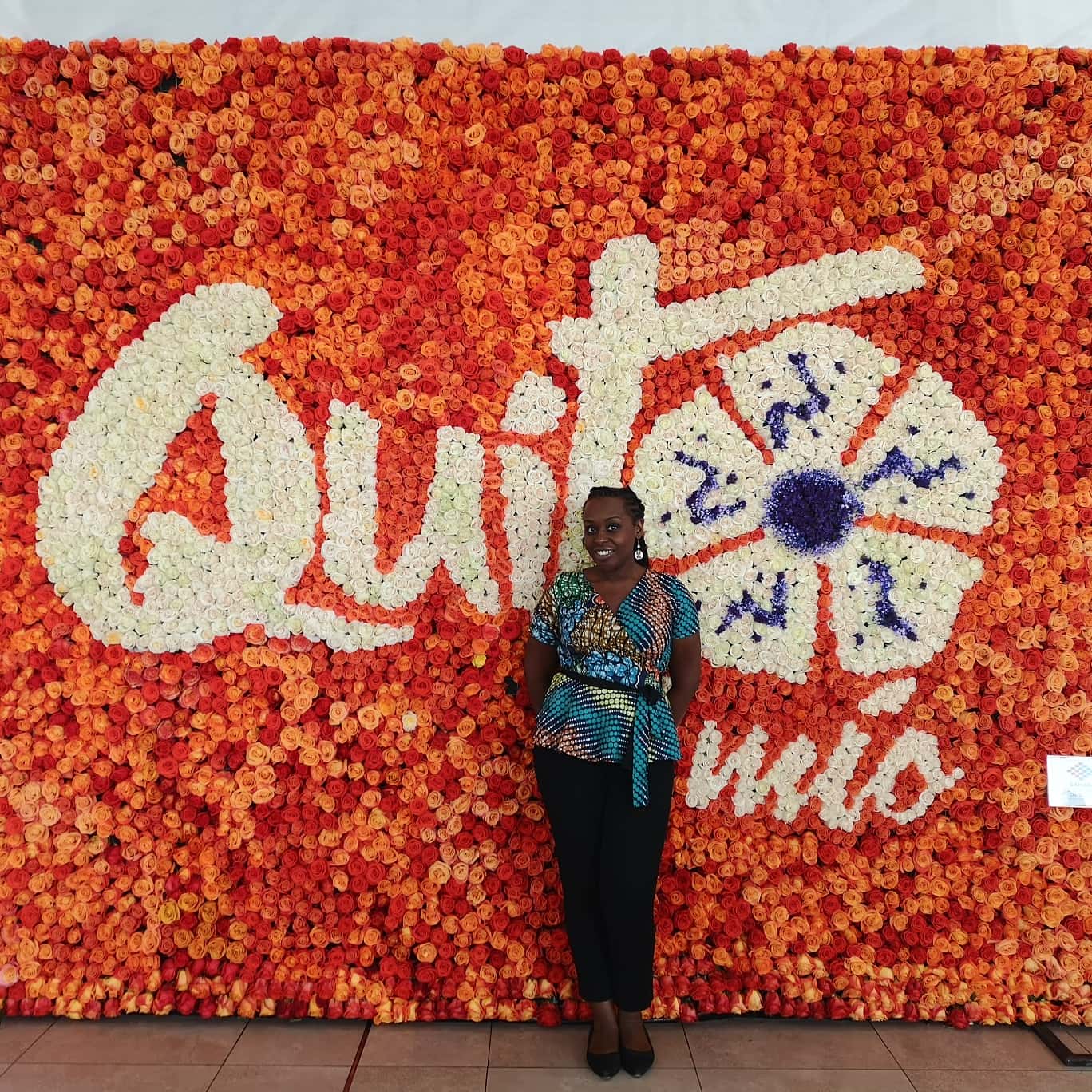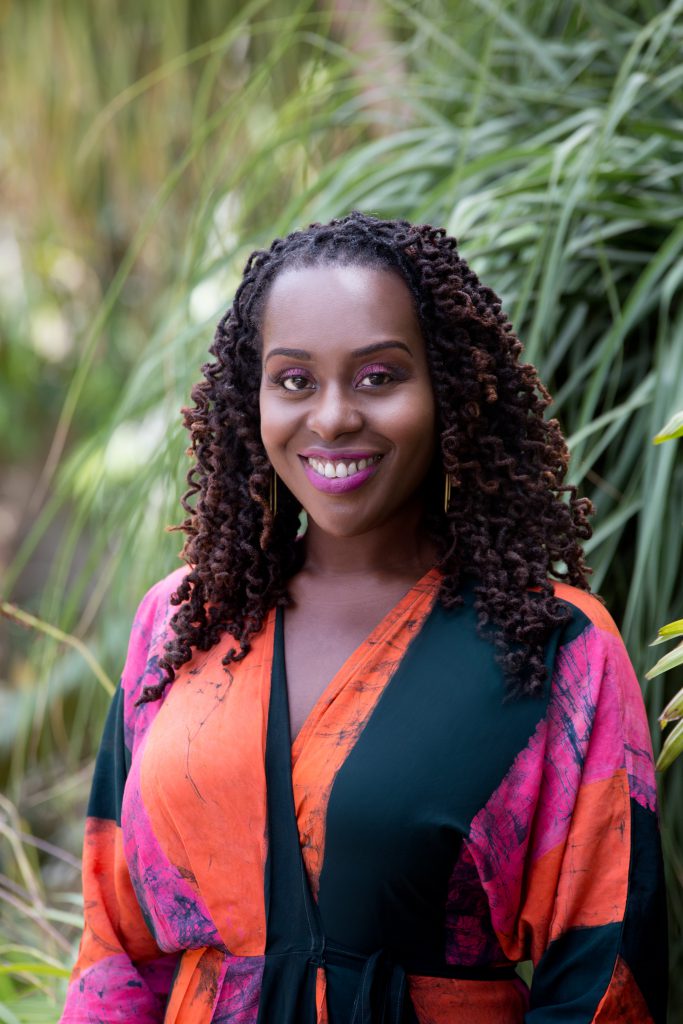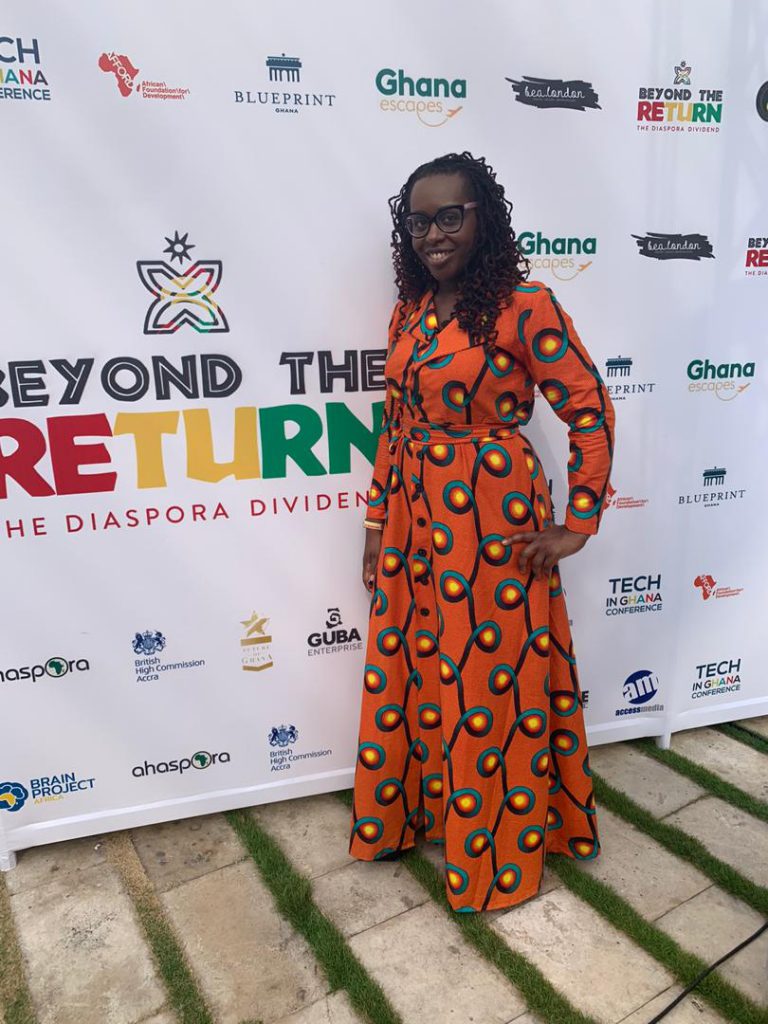
As the project increases its technical support activities via the Capacity Development Lab and Diaspora Professionals 4 Development, we are pleased to welcome a new colleague to reinforce the team. Elvina Quaison, our new Diaspora Engagement Specialist, brings over 18 years of experience working in international development with a focus on the African diaspora. Elvina is British Ghanaian, has a keen interest in discourse on diaspora identity and inclusion, and has supported diaspora-related projects on entrepreneurship and humanitarian response amongst others.

Hi Elvina. You joined the team at the beginning of October and I remember you saying that with all jobs in your career you’ve been right in at the deep end from the start. What was the most challenging professional experience for you so far?
I think the most challenging experience would be my role as the UK Coordinator of a three-country project on diaspora and humanitarian response. My experience had focused on international development and then entrepreneurship, so this was a new space for me.
Once I understood the ‘language’ and saw the humanitarian responses of diaspora individuals and organisations, the synergies and similarities between diaspora development and humanitarian interventions was clear. Initially, working with the humanitarian sector was a challenge because traditional actors had not fully recognised the role diaspora play and the potential to enhance and diversify formal humanitarian response.
My role was to help change perceptions by sharing examples and best practice, and to connect diaspora and humanitarian organisations together. I learnt so much about the importance of the humanitarian and development sectors interacting and working closer together. The diaspora provided an example of how important this approach can be as they naturally work and respond this way in everything from development, to preparedness, to humanitarian response, to resilience building and back to development!
You ran your own business in Ghana for several years. What was the most important lesson you learnt from the experience?
The most important lesson I learnt is that you cannot run your business as you would a charitable organisation!
This was a hard lesson for me as at that stage I had no business experience. People go into business for different reasons, but many are limited by inadequate business skills be it sales (specifically closing sales), marketing, customer targeting and so on. Being in a vibrant business environment like Ghana was both exciting and challenging as I had to learn the business culture, how to navigate the bureaucracy and about being a woman in business.
My services focused on assisting people with business and relocation ventures in Ghana, so learning from my own mistakes whilst setting up the business was invaluable. The experience gave me huge respect for those who start, build and grow their own businesses in challenging business environments, as they say in Ghana “it is not easy!”

How do you feel about merging your experience so far in this new role?
All my experiences, both in the public and private sector, have shown me the important and varied impact of diaspora. Whilst trail blazing individuals who have made meaningful impact through projects or business solutions have inspired me, I have also seen the work of various diaspora organisations and businesses help to change policies, mind-sets and ‘business as usual’ practices to bring about real change.
In my new role as Diaspora Engagement Specialist at ICMPD, I will be able to contribute this insight into our interventions with diaspora stakeholders and the assistance we provide to governments.
You joined us right in the middle of the selection process for the next round of CDL and DP4D actions. The process is still ongoing, but what are your initial thoughts on the applications?
On the surface this was a challenging time to join the team, but actually it turned out to be perfect timing. As we went through the applications I could see the innovation, the ideas and the commitment from governments and their diaspora to initiate progress and forge connections.
Having experienced applying for similar schemes, it was very interesting to be on the other side and witness the process, especially the consideration and scrutiny applied to each application before the final selection is made. It was also good to see the recognition given to applications that clearly display passion, innovation, commitment and sustainability plans.
What do you want to see more of in the diaspora-engagement sphere in the next few years, either from diaspora individuals and organisations, governments, international organisations or other players?
From government level to grass roots, we hear the term ‘diaspora’ mentioned. There is growing knowledge, understanding and interest of the contributions diaspora individuals can and do make to sustainable development.
What we need to see is greater inclusion of diaspora in decision-making spaces. This is as relevant for sectors such as health, education and construction, as it is for migration and international development. All policy areas can benefit from the inclusion of diaspora voices and perspectives to add depth and new dimensions.
You have worked with diaspora for over 18 years, what has made you keep this focus in your career?
I started my career with an interest in identity and how an individual’s idea of their identity can influence their life choices. My heritage is Ghanaian and I was born in the UK so I am part of the African diaspora. Finding a space where my dual cultures could exist was very important to me and this has really been at the core of my interest in diaspora for all these years: How this connection with a diasporic identity influences where you may migrate to, what you want to invest in, how you see yourself and others… All of these areas have been explored in my career in one way or another and the themes and focus areas continue to grow and develop.
As I work, I am continually inspired by other diaspora and how their sense of identity leads them to do some amazing, sometimes boundary-breaking things. In so doing, they often change perceptions of what is possible in business, creatively, or in one’s own personal life. Some of this is welcome, some is not, but all of it can stir conversation and shift mind-sets surrounding what is possible and where is home.
As much as a great deal of my diaspora focus has been in my professional life, it has also influenced my personal interests. I used to run an open mic night with a friend encouraging artists to explore their identity through their art. I started a network for young Ghanaians in the UK with five friends, which covered the arts. This network also created aninvestment event bringing Ghanaian institutions to the UK to meet with their diaspora and highlight safe investment possibilities.
Recently, the pandemic and lockdown had me turning to children’s books and exploring the diversity of experience young people face. My phone and a social media video platform enabled me to read children’s stories that speak to the beautifully diverse identities forming and reflecting some of that back to the audience.
I am pleased that I can continue to work with diaspora individuals, communities and those connected with them to highlight the value and importance diaspora hold. Working with EUDiF and the ICMPD team will enable me to contribute my skills to the exciting work here. I look forward to all that I will learn in this new role and meeting all the interesting staff, partners and beneficiaries. I am happy to be on this new journey!
Want to hear more from Elvina? Check out this interview, from the Diaspora Innovation Days in Africa, 28 October 2021.